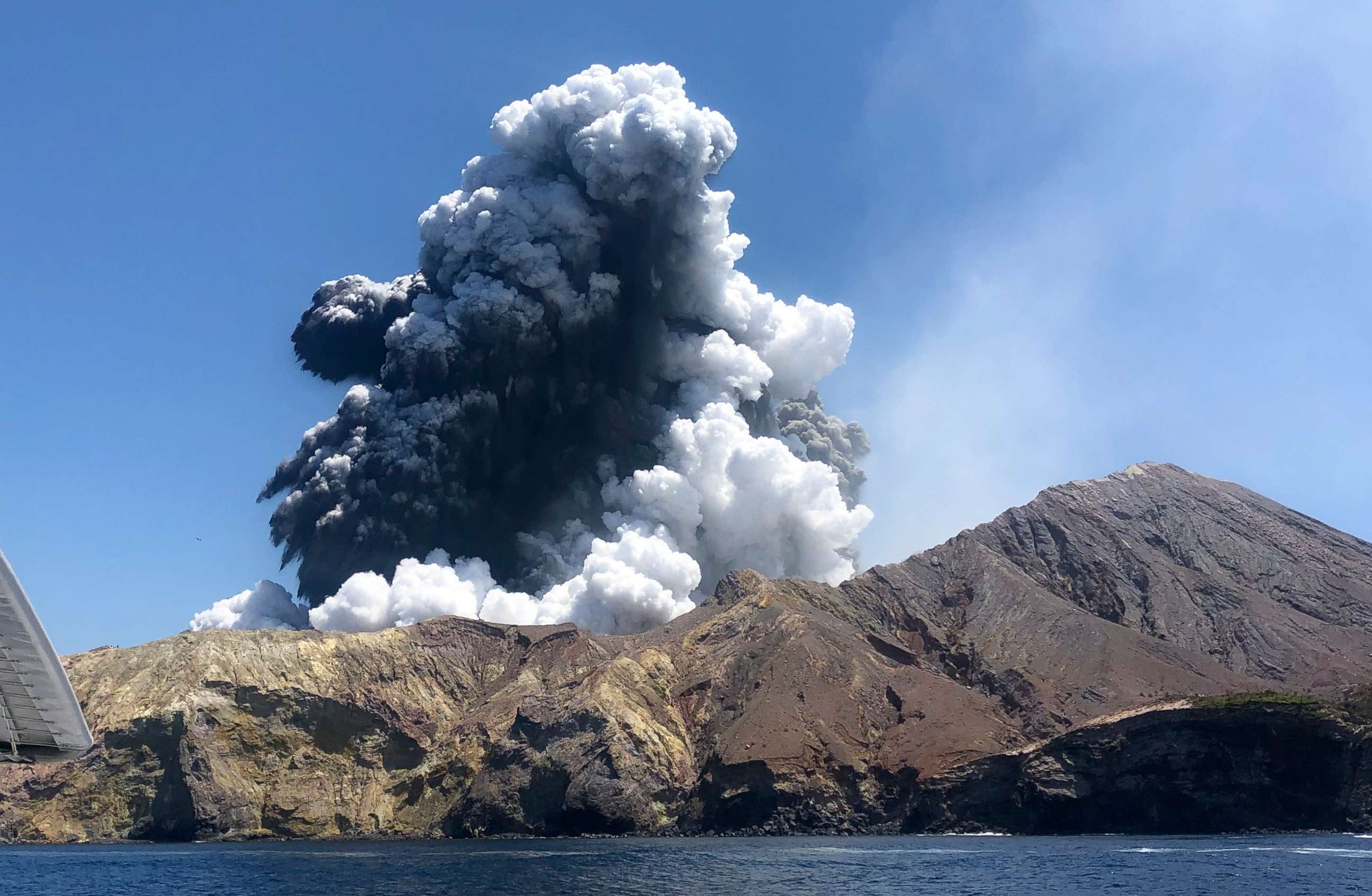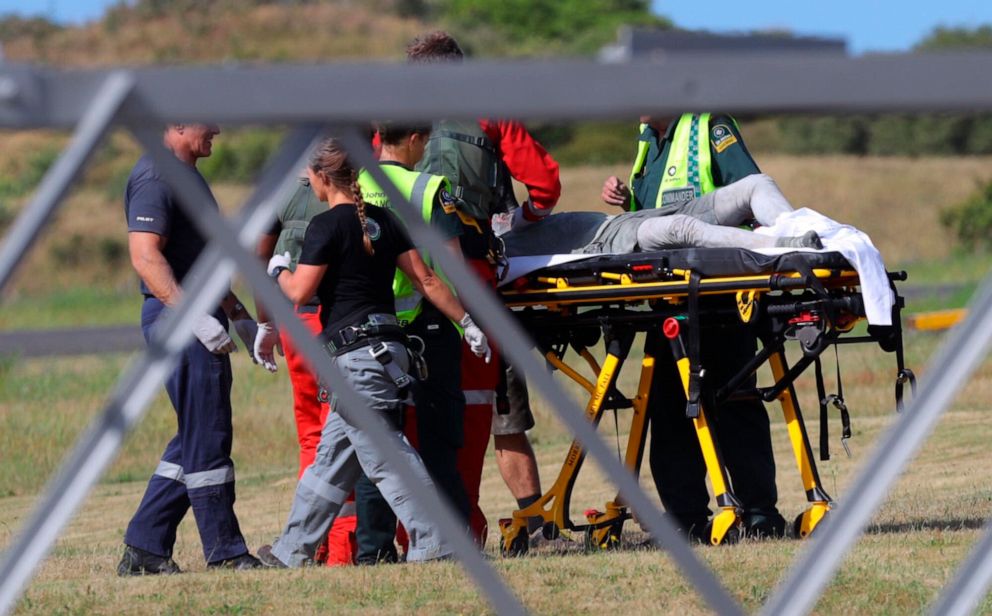Death toll from New Zealand volcano climbs to 8, including US-born brothers
Some of the volcano victims have burns covering 90% of their bodies.
LONDON -- The death toll from Monday's volcanic eruption in New Zealand has climbed to eight, according to the country's national police force.
The eight confirmed deaths were all people who had been evacuated from White Island shortly after the volcano erupted and have since succumbed to their injuries at hospitals across New Zealand.
Among those killed are two American-born brothers, Matthew and Ben Hollander, who moved to Australia from the Chicago area six years ago. The boys' parents, Martin and Barbara Hollander, are still missing, according to Knox Grammar School in Sydney, Australia, where the boys attended and which is acting as a liaison for their family.
"We are absolutely heartbroken by this loss," the family said in a statement. "Ben and Matthew were wonderfully kind and spirited boys who lived short but very fulsome lives."
"They had a positive and lasting impact on everyone’s paths they crossed," the statement continued. "The family requests privacy at this difficult time."
Meanwhile, 29 people suffering burns over at least 30% of their bodies were still receiving treatment at various hospitals in the country as of Wednesday. Twenty-two of the patients remain on airway support due to the severity of their burns and other injuries -- some were burned on 90% of their bodies, according to Dr. Peter Watson, chief medical officer of the Counties Manukau District Health Board.
"The majority [of patients] are very severe," Watson told reporters at a press conference Wednesday. "Our surgical teams have been working around the clock."

The nature of the burns is complicated by the gases and chemicals from the volcanic eruption, requiring more rapid surgical treatment than would be the case for thermal-only burns, according to Watson.
Watson said doctors require an estimated 1.2 million square centimeters of skin grafts to continue treating the burn victims.
An order has been placed with the United States for the additional skin as well as more wound dressings, according to Watson. The skin is the human body's largest organ, averaging a surface area of about 22 square feet.
A total of 47 people, including at least nine Americans, were visiting White Island, also known as Whakaari, when the volcano suddenly spewed steam, ash and debris into the air on Monday afternoon. Thirty-four people were rescued via helicopters that day and taken to hospitals for injuries, while others were stranded on the volcanic island, according to the New Zealand Police, which said there are likely no survivors.
Authorities are working to confirm the identities of the deceased as well as the injured. The New Zealand Police has launched an investigation into the circumstances of the deaths and injuries on White Island.
Police on Wednesday released the names and nationalities of another nine people who are listed officially as missing. Seven are from Australia and the other two are New Zealanders.
Earlier, police said eight people who are missing were believed to be still on the island and presumed dead.

Rescue workers have been unable to return to the island to recover the bodies of those believed to be killed because the conditions are too dangerous and unpredictable. A 5-mile no-fly zone is in place around the island, along with a 5-nautical-mile maritime exclusion zone.
"The environment on the island has changed, with increased volcanic activity since early this morning," New Zealand Police Deputy Commissioner John Tims said in a statement Wednesday. "We are standing by and ready to go as soon as we can be confident that the risks on the island are manageable."
White Island, about 30 miles from mainland New Zealand, is home to the country's most active cone volcano. The uninhabited island has had regular eruptions for years but has become a widely popular tourist destination, accessible only by boat and helicopter.
The family that owns the island has asked that the public respect a new prohibition restricting access to the ash-covered site.
Those who cannot get in touch with a friend or family member in the wake of the volcanic eruptions are urged to register them by visiting the New Zealand Red Cross website or call the New Zealand Police.
ABC News' Alexandra Faul, Marcus Moore, Kirit Radia, Christine Theodorou, Jim Vojtech, Anna Thomas, Alondra Valle and Karson Yiu contributed to this report.




